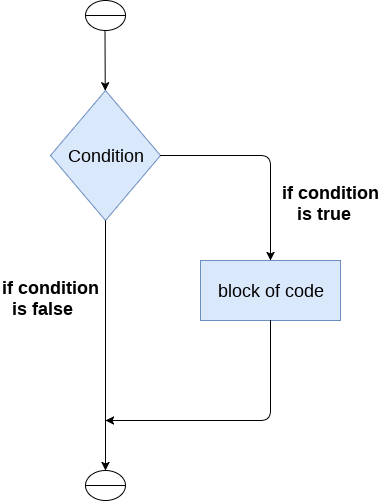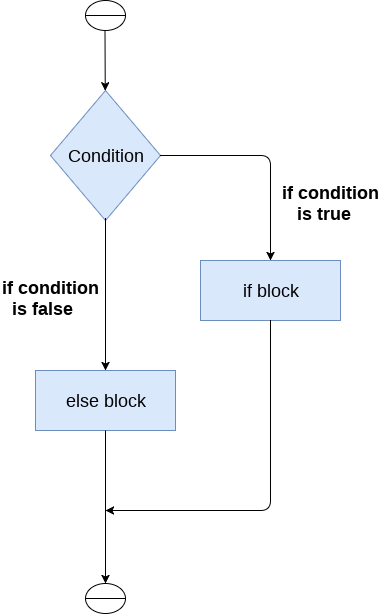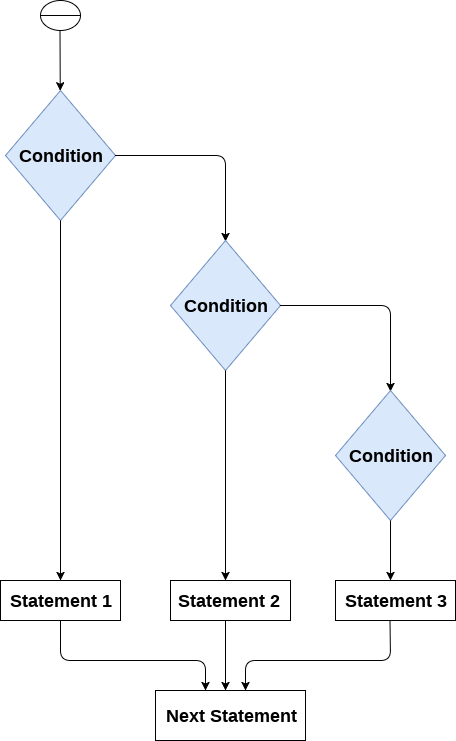Python If-else statements
Decision making is the most
important aspect of almost all the programming languages. As the name implies,
decision making allows us to run a particular block of code for a particular
decision. Here, the decisions are made on the validity of the particular
conditions. Condition checking is the backbone of decision making.
In python, decision making
is performed by the following statements.
|
Statement |
Description |
|
If Statement |
The if statement is used to test a specific condition.
If the condition is true, a block of code (if-block) will be executed. |
|
If - else Statement |
The if-else statement is similar to if
statement except the fact that, it also provides the block of the code for
the false case of the condition to be checked. If the condition provided in
the if statement is false, then the else statement will be executed. |
|
Nested if Statement |
Nested if statements enable us to use if ? else
statement inside an outer if statement. |

The if-else statement
The if-else statement provides an else block combined with the if statement which is executed in the false case of the condition.
If the condition is true, then the if-block is executed. Otherwise, the else-block is executed.

The elif statement
The elif statement enables us to check multiple conditions and execute the specific block of statements depending upon the true condition among them. We can have any number of elif statements in our program depending upon our need. However, using elif is optional.




0 Comments